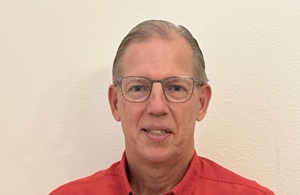
The lodging industry is built on the sharing of best practices. This may happen through direct conversations with peers—at your place of work, conferences, trade shows or other meetings. Best practices also come in the form of top-down mandates/suggestions from brands, from listening to podcasts, reading books or other publications specific to hospitality (Green Lodging News, for example), or maybe even from a visit with your local plumber or AC technician. The end result is typically healthier buildings, more energy and water conservation and greater waste management.
One of the things I really appreciate about our industry is its willingness to share best practices for the good of us all.
Seven years ago, in 2018, Six Senses Hotels Resorts Spas launched its Plastic-Free 2022 Initiative to document and remove as much plastic from operations as possible, tackling the entire lifecycle impacts. This learning, still very relevant today, resulted in 82 solutions—some Six Senses never thought possible and many pioneered by Six Senses “Plastic Heroes”.
“We’re on a mission to share best practices and inspire the entire hotel industry through our Journey to Plastic Freedom Playbook,” Six Senses says. The publication documents innovative solutions in four key areas—housekeeping, back of house, food and beverage, and spa.
Plastic Freedom Playbook Available for Download
Six Senses encourages the download of its playbook and the sharing of it with hoteliers worldwide. Be sure to go here to download the publication today.
“Our goal now is to share what we’ve learned, and to inspire and empower other hospitality brands on their own journey to plastic freedom,” Six Senses says.
I read through the 28-page playbook. Here are just some of the best practices that are shared:
- Drinking water production and reusable glass bottling facilities introduced at every resort. The result: around 1.8 million fewer plastic bottles are in circulation every year.
- Refillable ceramic dispensers for shampoo, conditioner, and shower gel introduced from day one as standard in guestrooms.
- Plastic straws eliminated and replaced with paper, bamboo, or lemongrass—or no straw at all.
- Supplier take back and return program launched, introducing a circular delivery model, which eliminated 29,497 unnecessary plastic packaging items.
- All bathroom amenities switched to plastic-free packaging, including toothpaste kits, hair essentials, and more.
- All plastic coffee sachets removed, saving around 33,215 pieces of plastic from landfill.
- An audit showed that in 2019 over 48,500 single-use razors and shaving kits were used across Six Senses resorts, all using plastic in some form or another. The solution for switching to a plastic free alternative has been to introduce bamboo or wooden razors with stainless steel blades, and shaving cream or soap presented in aluminum containers or wax paper—all of which are either sourced locally by hotels or through one of the preferred suppliers.
- Clingfilm was widely used by kitchen hosts, as it is the world over. When they needed to protect ingredients, produce or store perishables, Six Senses hosts would automatically reach for the roll. Now, Six Senses chefs use a range of alternatives, and some have simply banned it from their kitchen entirely. Reusable silicone lids and containers have been introduced for airtight preservation, and chefs have been empowered to think differently if it means plastic could be removed.
- All hotel purchasing teams and key suppliers received a letter translated into the local language that outlined the aims and reasons for starting the journey to plastic freedom. Six Senses explained its vision, encouraged them to suggest alternative products or packaging solutions and invited them to share the pledge to eliminate plastic whenever possible.
How to Harness the Power of Human Capital
Six Senses knew from the outset that its drive to eradicate plastics required the support, energy and creativity of all of its hosts, from the front line to the boardroom. When it started on its journey to plastic freedom, it had over 4,100 hosts, working in 13 different locations across the world, in dozens of different roles. The challenge it faced was how to harness the power of that human capital when it was already hard at work maintaining award-winning resorts and customer service.
Sustainability and Training teams collaborated on the creation of a dedicated program to educate hosts on exactly what plastic is, how it’s used within operations, and how that use is contributing to the long term harm of the communities hotels reside in. The training course was made up of six interactive modules, each lasting around 30 minutes. Whenever feasible, hosts completed the modules via in-person training to help facilitate engagement and to foster a sense of empowerment when what had been learned was put into practice. When in-person participation wasn’t possible, the course could be completed online.
All Six Senses hosts are expected to complete the training, and all newly recruited hosts are required to complete the modules within their first year. “Refreshers”, which revisit key aspects of the original training and allow hosts to update their knowledge of plastic freedom best practices, form part of their ongoing Learning & Development program, alongside subjects like Health & Safety, Cyber Security, and Brand Orientation.
Individual initiatives and innovations were also communicated back to all properties via updated product specification sheets, and regular online and in-person meetings were held so best practices were shared and adopted, particularly among Purchasing teams who are at the sharp end of negotiating or renegotiating supplier contracts.
The ‘18 Most Unwanted’ List
With any campaign or initiative, it’s important to measure and communicate success. What does winning look like for your team and how do you get there? For Six Senses this was tricky at first. Year-on-year bulk inventory measurement wasn’t the pathway it hoped it would be. The more efficient the reporting is, the bigger the problem is identified. Six Senses needed an alternative method to measure its progress and communicate success and expectations internally. This arrived in the form of an Ecole Hotelier de Lausanne MGH (Masters in Global Hospitality Business) student group who analyzed initial inventory and started categorizing the items it had been measuring. The work resulted in the “18 Most Unwanted” list. This revealed that 80 percent of the 2018 plastic inventory was made up of just 18 categories of items. What had seemed an insurmountable challenge involving millions of individual pieces of plastic had suddenly become a manageable task. If it could focus its efforts on just 18 categories of items, plastic freedom could be within its grasp. What plastic items would make your “Most Unwanted” list?
In addition to the “18 Most Unwanted” campaign, Six Senses also gamified tackling the issue of plastic removal by encouraging friendly competition between properties to see which could remove the most, fastest. An elimination score card displaying their progress in the race towards the finishing line of being plastic free was shared on a quarterly basis. Each property was assigned a “cowboy” avatar along with particular examples of excellence in the shape of Plastic Heroes.
Whether for plastics elimination or any other bad habit, has your company published a similar handbook that it is offering for no charge to anyone in our industry? I would love to learn about it so I can share it with our readers. I can be reached at greenlodgingnews@gmail.com.
Green Lodging News Adds Verdafero to Green Product & Service Directory
Green Lodging News has added Verdafero to the Software/Utility Analytics for ESG Reports category of its Green Product & Service Directory. Verdafero InSights is a cloud-based software service for both hotels and suppliers that offers dynamic data analytics across key indicators to provide an analysis of utility usage and operations by analyzing energy and water consumption, occupancy, weather, company operations and other resource utilization patterns to make better informed decisions on operating costs and environmental initiatives. Verdafero InSights provides in-depth reporting of your greenhouse gas emissions (GHG) for internal and external environmental reporting, serving as a comprehensive view of a company’s sustainability efforts for you and your client. If your customer is requesting your environmental footprint, Verdafero is here to help. E-mail Alastair Hood at alastair@verdafero.com or call (650) 206-2441. Visit www.verdafero.com to learn more.
Looking for Guest Columnists
Every two weeks Green Lodging News posts a new guest column on its website. (Click here for examples.) The guest column also appears in the weekly e-newsletter. Green Lodging News is currently in need of industry experts to contribute occasional guest columns. Experts may include consultants, architects, designers, suppliers, and those who own or operate green lodging establishments. Columns may be articles that take a stance on a particular subject or be strictly educational in nature. Columnists benefit by having their photo included along with a one paragraph description of their company. Interested in writing a column? Contact Glenn Hasek, publisher and editor, at (813) 510-3868, or by e-mail at greenlodgingnews@gmail.com.
Get in our Green Supplier Spotlights!
Green Lodging News, lodging’s leading environmental news source, publishes the Wednesday Green Supplier Spotlight and Thursday Green Suppliers Spotlight. Green Supplier Spotlight features just one vendor and Green Suppliers Spotlight features multiple vendors. Click here for a Green Supplier Spotlight sample and rate sheet. Click here for a Green Suppliers Spotlight sample and rate sheet. Both e-blasts that reach 17,860 subscribers have been built to generate quick leads. A report is sent a week after each e-blast that includes the number of e-mails sent, number of opens, and number of click-throughs. Contact Glenn Hasek at (813) 510-3868, or by e-mail at greenlodgingnews@gmail.com for more information.
Planning Advertising for 2025?
In addition to the Spotlight ads described above, Green Lodging News is accepting reservations for other advertising spots for 2025. Many excellent spots are available on our website and in the weekly e-mail newsletter. The Green Lodging News website last month welcomed 55,000 different visitors and experienced 330,000 page views. Interested in receiving a 2025 media kit? Be sure to contact me as soon as possible at (813) 510-3868, or by e-mail at greenlodgingnews@gmail.com. Thank you to all those companies that consistently support Green Lodging News.
Newsletter & Green Supplier Spotlight Circulation
The circulation of our weekly e-newsletter and Green Supplier Spotlights currently stands at 17,860. Thank you to our new subscribers for signing up. Be sure to encourage your colleagues to do the same. There are “subscribe” links on the Green Lodging News home page. You may also e-mail greenlodgingnews@gmail.com to be added to our list.
Green Lodging News & Social Media
Green Lodging News now has 1,634 Twitter followers. Thank you to all of those who follow our tweets. In addition to following us on Twitter, be sure to bookmark the Green Lodging News Blog in your browser. More importantly, participate with your comments. Green Lodging News is also on Facebook. Be sure to “Like” us there. Green Lodging News now has more than 1,200 Facebook followers.
As always, I can be reached at greenlodgingnews@gmail.com.





